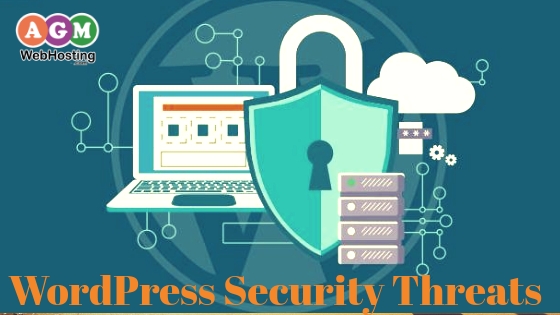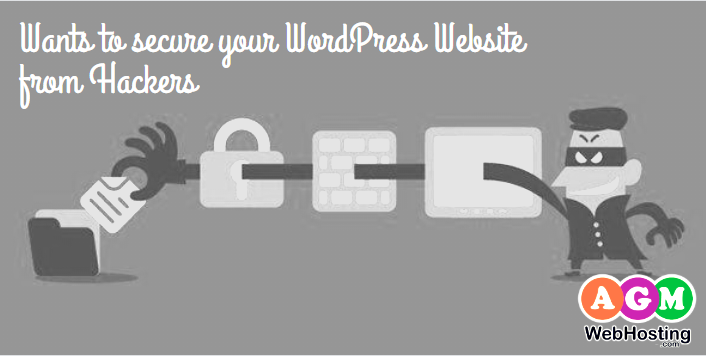
Web developers experience a ridiculous range of emotions throughout the web development process: excitement when a new idea triggers; contentment, bliss and joy when a work-in-progress is accomplished; and fear at varying intervals between.
Sadly, for every visitor reading this post, threats is an issue that must be addressed. It obstructs imagination, encourages negativity, and exponentially increases our chances of failure. It’s a toxin that poisons us on a basic, human level. And it’s death to the web development process.
In this post, we will discuss about what possible threats can occur with your WordPress Websites and how we can resolve them in more detail.

What is WordPress and Who uses it the most?
WordPress is an online, open source web based software tool written in PHP and is probably one of the most widely used convenient and powerful blogging and website content management systems on the Internet today. Originally developed as a blogging platform, WordPress has been expanded into a comprehensive and versatile CMS and yes! today, out of every four websites developed more than one is powered by WordPress. What is more, it is also used by individual bloggers, big businesses sites, eCommerce stores and lots of well-known entities! So, it is likely that the very site that you’re looking at right now is powered by WordPress too. Lots of other well-known entities use WordPress as well. Further, WordPress can be uploaded onto the user’s own web-space and free WordPress blogs are also available at WordPress.com.
Is Your WordPress Site Secure From Hackers? When it comes to security and the Internet, Ignorance is definitely not bliss, might bite hard when things go hard and the website is compromised. In this regard, the internet is not a safer place to work on as millions of people who could care less about your website and want to hack it also reside in the web. WordPress, at its core is same for every website, meaning that online criminals or hackers can understand their way around your mainframe and can get insights to find their way in to take full advantage accessing your sites in case if any errors may occur, such as in your theme or in a plugin.
Common Security threats faced by WordPress Users
Since this is something that all of us deal with as web developer, and because I love the idea of turning our demons into forces of good, I’d like to share what I’ve learned about identifying and resolving threats when it comes to website development powered by WordPress. You can also prevent the hackers to attack your WordPress site by maintaining the awareness of the current threats. When you find yourself getting stuck, avoiding a scene or project, or experiencing trepidation in regards to WordPress security issues, consider these points:
- Outdated Versions
The most recent version of WordPress (v3.5.1) contains 37 bug fixes, including fixes for three crucial security flaws. Older versions still possess these flaws and other issues as well, making them more vulnerable to attacks. Ideally, it’s crucial to always run the latest version of all software installed on your WordPress site; if this isn’t possible, you must at least ensure that you are taking alternative precautions. Concealing WordPress version that you’re using is straightforward and will make it even harder for hackers to attack the site and ensures the protection.
To conceal the WordPress version you are currently using, open the functions.php file from your theme and insert the following line of code:
remove_action(‘wp_head’, ‘wp_generator’);
This obstructs online criminals by hiding what WordPress versions you are using, keeping them in the dark about security risks they might exploit.
- Abandoned and Risky Plugins
Plugins is a software tool consisting group of functions that can be added to your WordPress websites expanding the functionality or add new features. Using plugins and themes from untrustworthy sources is another most common way attackers can exploit your WordPress website. Since plugins and themes are potential sources of security vulnerabilities, as a security best practice, it is a good idea to download and install WordPress plugins and themes merely from reputable sources (such as from WordPress.org repository) and trustworthy premium companies. Also, you better avoid bootleg or torrented “free” versions of premium themes and plugins which might contain poorly-written, insecure, malicious and outdated code.
- Using Weak Passwords and Allowing Unlimited Login Attempts
Using a weak password is another biggest security vulnerabilities you can easily avoid. Your WordPress admin password should be strong consisting several characters, symbols or numbers accordingly. Moreover, the password should be specific to your WordPress site and not used anywhere else. While using more secure passwords can prevent your site from online criminal attacks, you can also ensure even more security by restraining the number of login attempts in a certain time period or from a particular IP address.
- Universal Registration
Allowing anyone to register with your WordPress site may seem like a good idea; for example, you may want people to give feedback on your products or comment on articles and content. Instead of allowing people to register directly, rather it is good to manage via commenting system ensuring protection from brute force attacks. Also, universal registration might sometimes bolster to access your dashboard and personal information giving attackers to take control of your site. You can stop this by restricting registration from your general settings screen.
- Vulnerabilities in Themes
WordPress themes allow you to customize the way your site is displayed and help you produce graphical interface with great design. Unfortunately, like plugins, they can sometimes enhance to attack your site, perhaps by including a backdoor in the code. Ensure that any theme you use is free from malware or security flaws.
Key Takeaways
Try these steps to ensure that your WordPress Site is free from security threats to more extent.
- Install the latest version.
- Disable universal registration.
- Keep your security software up-to-date.
- Install any recommended security plugins from reputed sources.
- Make use of strong Password
- Enable Two-factor Authentication
Conclusion
Make sure as a popular piece of software, new WordPress vulnerabilities will inevitably arise over time as criminals attempt to find ways around security systems. Keeping your software up-to-date will help protect your WordPress site from online criminals or hackers.
